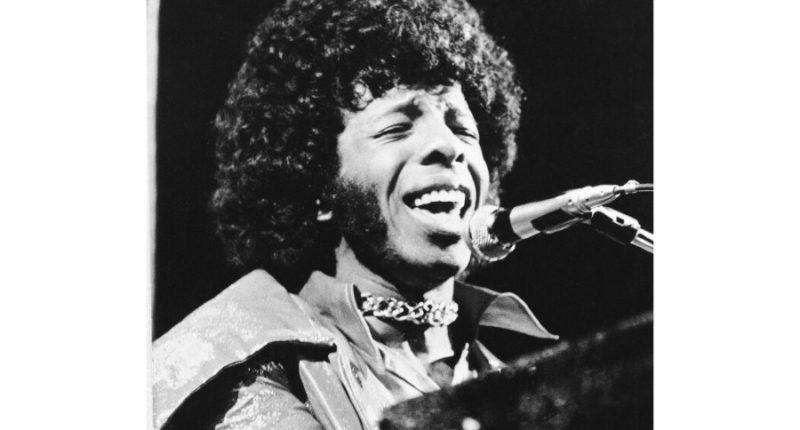Share this @internewscast.com

NEW YORK (AP) — Renowned musician and charismatic performer Sly Stone, the visionary behind Sly and the Family Stone, who reshaped the music scene of the 1960s and ’70s with iconic songs like “Everyday People,” “Stand!” and “Family Affair,” has passed away at the age of 82.
Born as Sylvester Stewart, Stone had struggled with health issues in recent years. According to his publicist, Carleen Donovan, Stone died on Monday, in the presence of his loved ones, after battling chronic obstructive pulmonary disease alongside other health challenges.
Established in 1966-67, Sly and the Family Stone was a trailblazer, being the first prominent band to feature a diverse lineup of Black and white members, both men and women. They epitomized an era filled with possibilities — marked by protests, political upheaval, communal living, and counterculture expressions. Their performances were electrifying, marked by energetic shouts, chants, soulful tunes, and passionate vocals. The band’s sound was a vibrant fusion of lively horns, fast-paced guitar work, and driving rhythms, blending elements of jazz, psychedelic rock, doo-wop, soul, and the burgeoning genre of funk.
Sly’s time on top was brief, roughly from 1968-1971, but profound. No band better captured the gravity-defying euphoria of the Woodstock era or more bravely addressed the crash which followed. From early songs as rousing as their titles — “I Want To Take You Higher,” “Stand!” — to the sober aftermath of “Family Affair” and “Runnin’ Away,” Sly and the Family Stone spoke for a generation whether or not it liked what they had to say.
Stone’s group began as a Bay Area sextet featuring Sly on keyboards, Larry Graham on bass; Sly’s brother, Freddie, on guitar; sister Rose on vocals; Cynthia Robinson and Jerry Martini horns and Greg Errico on drums. They debuted with the album “A Whole New Thing” and earned the title with their breakthrough single, “Dance to the Music.” It hit the top 10 in April 1968, the week the Rev. Martin Luther King was murdered, and helped launch an era when the polish of Motown and the understatement of Stax suddenly seemed of another time.
Led by Sly Stone, with his leather jumpsuits and goggle shades, mile-wide grin and mile-high Afro, the band dazzled in 1969 at the Woodstock festival and set a new pace on the radio. “Everyday People,” “I Wanna Take You Higher” and other songs were anthems of community, non-conformity and a brash and hopeful spirit, built around such catchphrases as “different strokes for different folks.” The group released five top 10 singles, three of them hitting No. 1, and three million-selling albums: “Stand!”, “There’s a Riot Goin’ On” and “Greatest Hits.”
For a time, countless performers wanted to look and sound like Sly and the Family Stone. The Jackson Five’s breakthrough hit, “I Want You Back” and the Temptations’ “I Can’t Get Next to You” were among the many songs from the late 1960s that mimicked Sly’s vocal and instrumental arrangements. Miles Davis’ landmark blend of jazz, rock and funk, “Bitches Brew,” was inspired in part by Sly, while fellow jazz artist Herbie Hancock even named a song after him.
“He had a way of talking, moving from playful to earnest at will. He had a look, belts, and hats and jewelry,” Questlove wrote in the foreword to Stone’s memoir, “Thank You (Falettinme Be Mice Elf Agin),” named for one of his biggest hits and published through Questlove’s imprint in 2023. “He was a special case, cooler than everything around him by a factor of infinity.”
In 2025, Questlove released the documentary “Sly Lives! (aka The Burden of Black Genius).”

















